- Home
- Scott Mariani
The Armada Legacy bh-8 Page 9
The Armada Legacy bh-8 Read online
Page 9
‘Fergus Doyle.’ Ben had heard that name.
‘Bad rep,’ Boonzie said. ‘Made the Shankill Butchers look like a bunch of choirboys. He’d be an auld man now, Ben, but if he’s still alive he’s an evil bastard. This isnae something you can deal with alone. Talk to the cops, for Christ’s sake.’
‘No chance. Thanks, Boonzie. Take care.’ And before his old friend could say any more, Ben ended the call.
Chapter Fifteen
It wasn’t quite true to say that Ben Hope loved Ireland, at least not all of it. And Belfast was somewhere he’d chosen to avoid for a long, long while.
His first ever experience of the place had been during his early twenties, just months after finishing basic training, in his first tour of duty with the British armed forces. Join up and see the world, the recruitment campaign had said, promising everything but the hula-hula girls of the Shankill Road. The last time he’d seen it, some years later, had been as an SAS officer and a very different person from the inexperienced youth sent out with a rifle to patrol those terrifying streets.
With the SAS Ben had witnessed the tail end of the Troubles, an era that had claimed over three thousand Irish lives over four decades, as well as a good number of the British soldiers whose job it had been to try to keep the whole volatile mess under control.
Whether they should have been there at all was a question that Ben had privately asked himself many times over – but when the bullets began to zip about your ears you didn’t dwell too long on ethical or political debate, and the air had been thick with them back then. Shortly after Ben had first landed at RAF Aldergrove with his new SAS unit, a British Army Gazelle helicopter had been shot down in flames by an IRA rocket just over the border, killing the pilot and maiming three soldiers. Not long afterwards, two SAS troopers from Ben’s company had been cut down in a gun battle with the IRA outside the village of Cappagh, County Tyrone. Then just days later, the army had caught up with the gunmen after a daring but ultimately foolish attack on an RUC station with a stolen heavy machine gun mounted on a lorry. The IRA men had been switching to their getaway vehicle in a Catholic church car park when the SAS unit in pursuit had engaged with them: a bloody little firefight that had left six corpses on the ground and given Ben his first serious bullet wound.
And on it had gone. Right up until the official 1997 ceasefire, the city of Belfast and the surrounding areas had been caught up in a relentlessly violent storm of reprisals, counter-reprisals, bombings and beatings, ambushes and assassinations.
All things considered, it wasn’t a part of the world Ben had ever wanted to return to. Yet here he was, speeding towards the city, foot on the floor and overtaking everything in sight with his windscreen wipers working flat out to beat aside the rain. He covered the seventy-mile journey from Derry in just under an hour, stopping only for fuel and to stoke himself up with a coffee and a wolfed-down sandwich at a motorway services.
As he made his way into the rain-slicked streets of Belfast, the marks of a community forever divided by hatred were painfully visible, even after years of official peace. Ben drove along a road that skirted one of the city’s ‘peace lines’, tall reinforced mesh fences and gates erected to segregate the clashing sectarian groups wherever their territories met.
It was Ireland’s own version of Apartheid, its own Berlin Wall. Union Jacks hung limply from lampposts and poles in the Protestant Loyalist districts; the Irish green, white and gold tricolour in the Catholic Republican areas. Still that same old atmosphere of cold, brooding fear. All that was missing were the military Land Rovers, the Saracen armoured personnel carriers and the checkpoints that had once been a common feature throughout the city and the surrounding area.
Ben knew the majority of the people were trying to put the past behind them. But some things never really changed, deep down. Some things never really could.
By lunchtime he was parked opposite a pub called The Spinning Jenny in the staunchly Catholic west of the city. He had a reason for being there. In its day, the place had been a watering-hole for some of Belfast’s more notorious IRA hardmen. From the look of the place, Ben reckoned it probably hadn’t changed a hell of a lot since then either.
Sitting at the wheel, he took out his phone and dialled Amal’s number. When there was no reply, he left a brief message to say he had a possible lead and would be in touch again soon. Amal didn’t need to know that the lead concerned a stone-cold IRA killer recently sated with the blood of his long-time enemy and most likely capable of just about anything.
After he’d left his message Ben spent a few minutes trawling online for any further information on Fergus Doyle that he hadn’t already researched. From what he could put together, it seemed that the man had reached the peak of his ultra-violent career in 1983, five years after the death of his brother. Boonzie had been right: the atrocities committed by the Shankill Butchers, the gang of Loyalist thugs responsible for the wholesale murder and torture of innocent Catholics throughout the better part of the seventies and early eighties, were by no means any worse than the catalogue of carnage and cruelty attributed to Doyle and his followers.
But where the Shankill Butchers had been slow-witted enough to let themselves be hunted down and caught one by one, either shot or imprisoned, Doyle had somehow managed to evade capture all these years. From the turn of the nineties there seemed to be nothing more on him. Even in terrorist circles, everyone had their fifteen minutes of fame before obscurity beckoned.
Ben studied every image he could find of the man until he was confident that he’d recognise that ugly, mean, lopsided face at a glance, even lined and wrinkled with age as it must be today. Fergus Doyle had an evil look in his eye. Ben had seen enough of the dark side of the world to know what some evil men did to women unlucky enough to fall into their hands. Trophies kept for personal amusement, battered and raped until they were finally discarded dead in a ditch; drugged-up into hopeless junkies who would prostitute themselves to anyone for another fix; sold into the international trade in human trafficking.
Fergus Doyle. Ben didn’t give a damn how old and wrinkled that face was now. He’d still happily put three bullets through it if he couldn’t have Brooke back.
And maybe even if he could.
He put his phone away, clenched his jaw hard and took three deep breaths. Then he flung open the driver’s door, got out of the BMW and crossed the road to The Spinning Jenny.
Chapter Sixteen
The pub was dark and drab inside, and almost empty apart from a few drinkers hunched over pints of Guinness around a table at the back. Dirty light filtered in through the windows. The place smelled of stale beer. Stale tobacco smoke too, and there were flecks of cigarette ash on the floorboards – evidently nobody had been too bothered to clean up after last night’s after-hours lock-in, when small matters like abiding by the non-smoking regulations became even less important. That was fine by Ben. He sat at the bar and mechanically lit a Gauloise.
The barman, a burly guy of about thirty, paused in the middle of polishing a pint glass, and fixed him with a belligerent eye. ‘Can’t smoke in here, friend.’
‘Right,’ Ben said, and took another drag. ‘How about a whiskey? Double.’
‘Ice?’
‘As it comes.’
When the barman slapped the glass on the scarred surface, Ben grabbed it and swallowed the liquor down in one stinging gulp. The alcohol hit his system fast, making him realise how little he’d eaten in the last couple of days. He ordered another, and a bag of crisps to go with it.
‘Haven’t seen you in here before,’ the barman said, not any friendlier, and not just because of the cigarette. In a place like The Spinning Jenny, Ben’s English accent marked him out as the enemy whatever he might spend at the bar. A guy like him walking into a staunchly Republican pub was like a black man walking into a Ku Klux Klan meet. That was why he’d purposely left his bag in the car. Toting such a very obviously ex-military piece of kit with him would have been
no less of a red rag to a bull than wearing a beret with the SAS winged dagger on it. Not that Ben was overly concerned about provocation. But he had to get inside the door before he could state his business.
He flicked away the stub of the Gauloise. ‘I’m looking for a man called Doyle. Fergus Doyle.’
The barman frowned. The low murmur of conversation from the table at the back suddenly dwindled into silence and a couple of faces turned around to stare coldly.
‘What did you say?’ the barman asked.
‘Fergus Doyle,’ Ben repeated. ‘I’m looking for him. Thought this establishment of yours would be a good place to start.’
‘And why might that be?’ the barman said tersely.
‘Let’s not play games,’ Ben said.
‘What would you want with Fergus Doyle?’
‘I’d like to have a conversation with him,’ Ben said.
‘A conversation about what?’
‘You don’t want to know.’
‘Nobody by the name of Fergus Doyle drinks here.’
‘Then why did you ask me what I wanted him for?’
The barman motioned towards Ben’s glass. ‘I’d say you’d be best to finish that up and go and look elsewhere for your friend.’
‘I didn’t say he was a friend,’ Ben said. ‘And I’ll have another drink.’
The barman leaned closer across the bar. His gaze flickered past Ben’s shoulder towards the table at the far end of the room, then turned back on Ben with a meaningful look. ‘Listen,’ he said in a low voice. ‘I’m only going to say this once. My advice to you is to leave before you open your mouth too wide.’
‘Why would that be?’
‘Because opening your mouth too wide can get you in a lot of trouble around here,’ the barman said. ‘If I was you, I wouldn’t hang around.’
‘I was just getting comfortable,’ Ben said.
‘That’s my advice. A clever man would take it and a foolish man would ignore it.’
Ben nudged his empty glass across the bar. ‘Same again.’
‘It’s your funeral.’ The barman refilled it from the optic and then withdrew to the other end of the bar.
The pub was very quiet now. The drinkers at the back slowly returned to their pints but were saying nothing. As Ben sipped his third whiskey and munched on a crisp he noticed one of them, a scrawny little guy with a greying crew cut, take out a phone and start keying in a text message, head bowed and thumbs twiddling. The conversation resumed around the table. The barman busied himself tidying up more glasses.
Ben was finishing his crisps when the guy who’d sent the text message got up from the table and left with a nod to his mates. Ben noticed the agitation in his step as he headed for the door. Someone else at the table glanced back towards the bar, caught Ben’s eye and quickly glanced away again.
It wasn’t too long before Ben heard a car pull up outside. Moments later the pub door swung open and the scrawny grey-haired guy came back in. He was accompanied by three other men, all of them much larger than he was and all wearing the same set scowl. The scrawny guy jerked his chin at the bar, as if to say ‘that’s him’.
‘We’ll take it from here,’ the middle one of the three men said. He was in his fifties, six-two and built like a grizzly, half lard and half muscle with the features of a bare-knuckle boxer who’d lost a few too many fights. ‘Scram,’ he said to the scrawny guy, jerking his thumb at the door.
The rest of the guys at the table spontaneously drained the dregs of their pints and beat a hasty retreat along with their companion. The barman disappeared into a little office, suddenly absorbed by some paperwork he had to attend to.
The three guys strode purposefully up to the bar and circled Ben. Arms folded. Faces hard. It looked as if he was making progress.
He studied them. There was always a leader, and the big bear with the beaten-up chops was clearly it. His shoes were polished and he was wearing a long black overcoat that didn’t do much to hide his bulk. The one on the left in the bike jacket was an orang-utan: cropped ginger hair, heavy brows and arms longer than his legs. Textbook henchman, just waiting for the word to launch into a violent onslaught. The one on the right was wearing a hoodie and had more the look of a hungry wolf, greased-back hair, darting eyes, acne-pitted hollow cheeks and a nervy twitch to his mouth.
‘Name’s Flanagan,’ the leader said, eyeing Ben with a steely expression. ‘Frank Flanagan. You might have heard of me.’
‘Yeah, you’re a comedian, or something,’ Ben said.
‘That’s very funny,’ Flanagan said, unsmiling. ‘We’ll all have a laugh in a minute.’ He dug a meaty fist in the pocket of his overcoat and took out a BlackBerry. ‘Now, I just received a message on here from my friend, saying there was a fella asking about Fergus Doyle.’ He pronounced the name with reverent emphasis, as though it belonged to some hallowed patron saint. ‘And he informs me that this fella in question is you.’ He pointed a stubby finger at Ben’s face.
Flanagan was one of those wise guys who thought he had the gift of the gab and could use it to intimidate. Ben wasn’t in the mood to waste time, but he was content to play along for now. ‘Top marks to your friend. That’s correct.’
‘I was afraid you might say that,’ Flanagan said. ‘For your sakes, that is. So why would a fella like you be in here asking for Mr Doyle?’
‘That’s between him and me,’ Ben said.
Flanagan’s crooked smile widened. ‘For the moment, I’m acting as his intermediary as you might say.’
Ben calmly returned his stare. ‘Well, then let’s just say that I think he has something I want, and I have something he might want. I take it you know him pretty well, do you?’
‘I know him, aye. But here’s the problem. I don’t know you.’
‘Fucking soldier boy,’ said the orang.
‘You got that wrong, ape face,’ Ben said.
‘What did you call me?’
‘I can’t be the first one to have noticed it,’ Ben said.
‘We know a fucking soldier boy when we see one,’ said the wolf, with a twitch. ‘You think we didn’t spend enough time watching you bastards when there was a machine gun pointing at every woman and child in Ulster?’
‘I’m just a guy who’s lost something,’ Ben said. ‘If Doyle can help me get it back, we can do business.’
‘What if Mr Doyle isn’t inclined to do business with the likes of you?’ Flanagan said.
‘Then Mr Doyle is going to have to think again.’
Flanagan recoiled in mock outrage. ‘That sounded like a threat to me.’ He turned to the orang, who was staring, seething, at Ben. ‘That sound like a threat to you, Sean?’
‘It did, Frank,’ Sean replied, not taking his eyes off Ben.
‘I’m very disappointed,’ Flanagan said. ‘I’d hoped we could resolve this more amicably, but I see now we’re going to have to do it the hard way.’
‘That’s a very regrettable choice,’ Ben said.
‘Not for us, it isn’t. Scalpel, Gary.’ Flanagan held out a beefy hand and the wolf instantly reached under his jacket and came out with a knife bayonet. He passed it to Flanagan, who drew it deliberately from its scabbard. Seven inches or so of blackened forged-steel blade, the kind of mass-produced military killing tool that could be procured dirt cheap and disposed of without a second thought when the job was done.
‘Now move yer arse,’ Flanagan growled, wagging the blade towards the rear exit.
‘Are we going somewhere?’ Ben said.
Gary gave another twitch and threw a nervy glance at his colleagues. ‘Should we not wait for the others, boys?’
‘What for?’ Flanagan asked coldly.
‘John has the gun.’
‘We don’t need a gun to take care of this piece of shite,’ Flanagan growled. He motioned to the other two and they grabbed Ben’s arms.
Ben let them. The bayonet looked sharp and its tip was just a few inches from his throat. They yanked him awa
y from the bar and started marching him roughly towards the rear exit.
Chapter Seventeen
The doorway led out onto the alley at the back of the pub. A cold damp wind was funnelling down the narrow passage from the main street to the left, blowing litter and dead leaves. Flanagan shoved Ben to the right, away from the street. ‘Walk.’
‘The car’s that way,’ Gary said, motioning back.
‘We’re not going to the car,’ Flanagan said. ‘We’re taking yer man for a wee scenic stroll, and then he’s going to find out what happens to big-mouthed fuckers like him who go around asking too many questions.’
‘What do you think about that, soldier boy?’ said Sean.
‘I think you’re making a mistake,’ Ben said. ‘But you still have time to get out of it.’
‘You won’t be so cocky with your liver hanging out,’ Flanagan said, jabbing the blade at Ben’s back. He paused, as if waiting for Ben to dissolve into a gibbering panic. When it didn’t happen, he added, ‘I’d just as soon have carved you up inside the pub, but why should they have to clean up all the mess?’
‘That shows a considerate side,’ Ben said. ‘Maybe you should consider putting the toothpick away, too. Because it’s going to hurt like hell when the doctor’s prising it out of your arse later.’
‘Would you listen to this fucker?’ said Sean.
‘I still think we should wait for the others,’ Gary muttered.
‘They’ll be here any minute,’ Flanagan said. ‘They can help put what’s left of this bastard in with the rubbish.’ He motioned at a wheelie bin at the side of the alley that was overflowing with garbage bags. Next to it was a row of battered metal dustbins with rusty lids. ‘Okay, that’s far enough,’ he told Ben, grabbing his collar and wheeling him round so his back was against the alley wall. Flanagan’s fingers were white on the hilt of the knife bayonet. ‘You’ll be dead in a couple of seconds, so if you’ve got anything to say, say it now.’

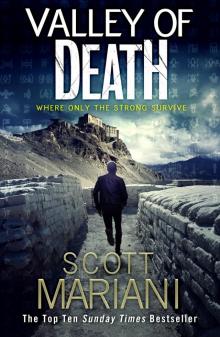 Valley of Death
Valley of Death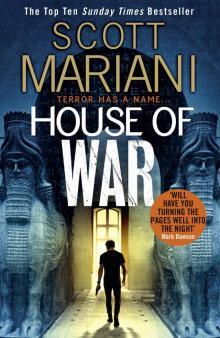 House of War
House of War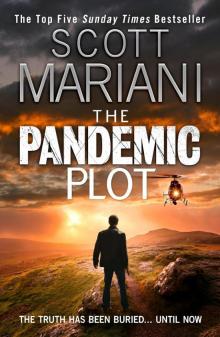 The Pandemic Plot
The Pandemic Plot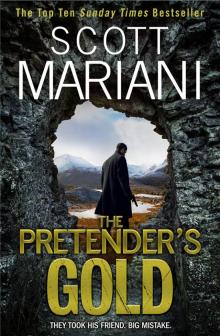 The Pretender's Gold
The Pretender's Gold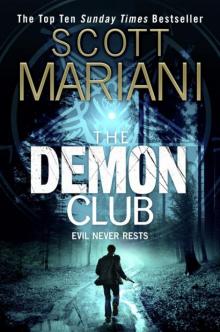 The Demon Club
The Demon Club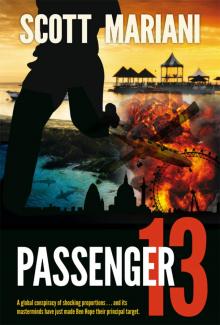 Passenger 13 (Ben Hope eBook originals)
Passenger 13 (Ben Hope eBook originals)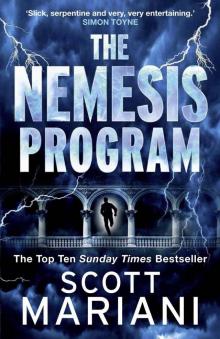 The Nemesis Program_Ben Hope
The Nemesis Program_Ben Hope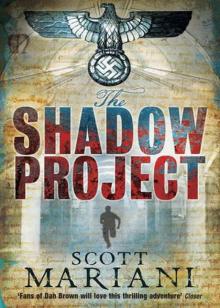 The Shadow Project
The Shadow Project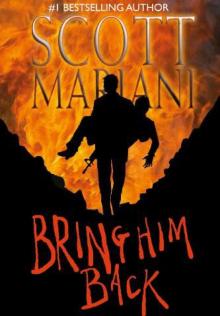 Bring Him Back
Bring Him Back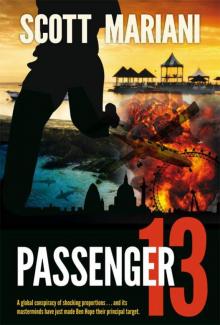 Passenger 13
Passenger 13 Sacred Sword (Ben Hope 7)
Sacred Sword (Ben Hope 7)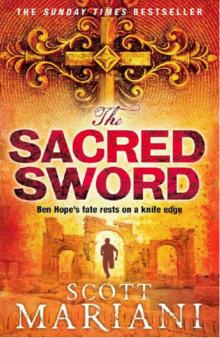 The Sacred Sword (Ben Hope 7)
The Sacred Sword (Ben Hope 7)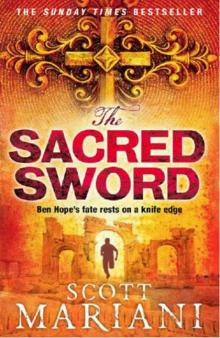 Sacred Sword
Sacred Sword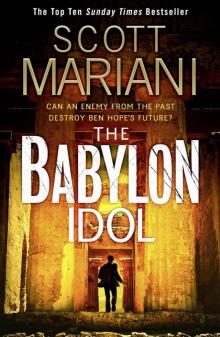 The Babylon Idol
The Babylon Idol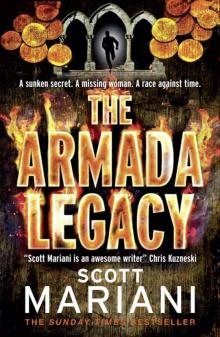 The Armada Legacy
The Armada Legacy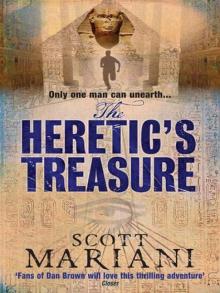 The Heretic's Treasure
The Heretic's Treasure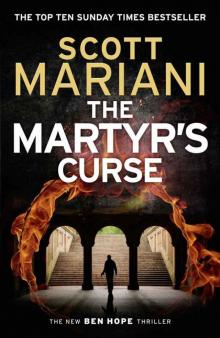 The Martyr’s Curse
The Martyr’s Curse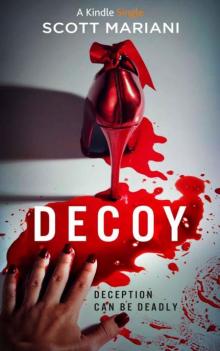 DECOY (Kindle Single)
DECOY (Kindle Single)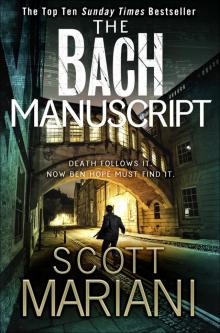 The Bach Manuscript
The Bach Manuscript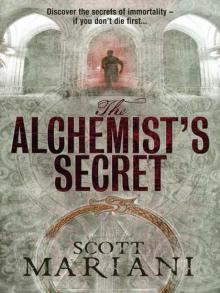 The Alchemist's Secret
The Alchemist's Secret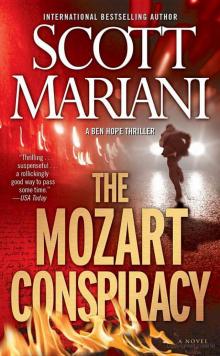 The Mozart Conspiracy: A Novel bh-2
The Mozart Conspiracy: A Novel bh-2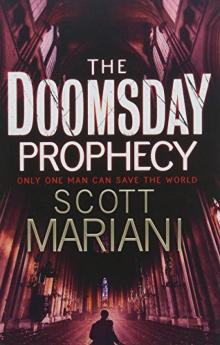 The Doomsday Prophecy
The Doomsday Prophecy The Ben Hope Collection: 6 BOOK SET
The Ben Hope Collection: 6 BOOK SET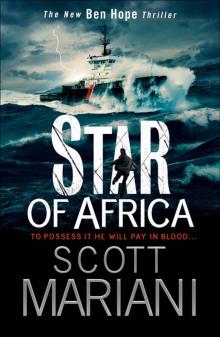 Star of Africa (Ben Hope, Book 13)
Star of Africa (Ben Hope, Book 13)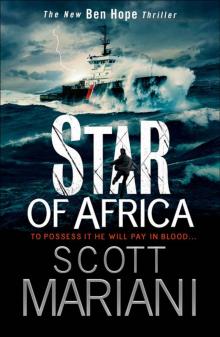 Star of Africa
Star of Africa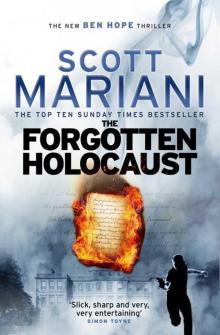 The Forgotten Holocaust (Ben Hope, Book 10)
The Forgotten Holocaust (Ben Hope, Book 10)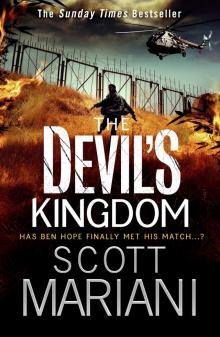 The Devil's Kingdom
The Devil's Kingdom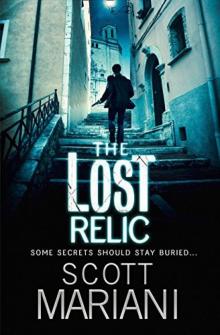 The Lost Relic
The Lost Relic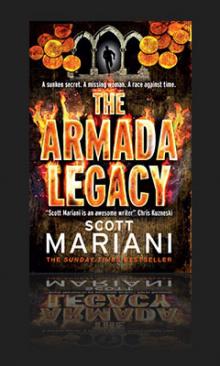 The Armada Legacy bh-8
The Armada Legacy bh-8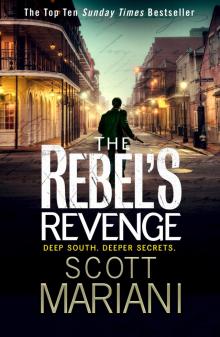 The Rebel's Revenge
The Rebel's Revenge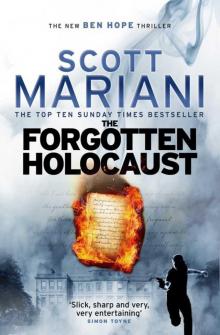 The Forgotten Holocaust
The Forgotten Holocaust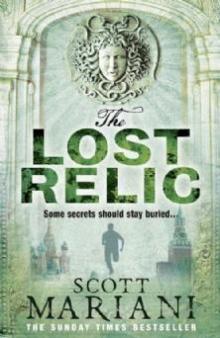 The Lost Relic bh-6
The Lost Relic bh-6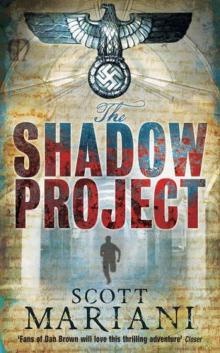 Ben Hope 05 - The Shadow Project
Ben Hope 05 - The Shadow Project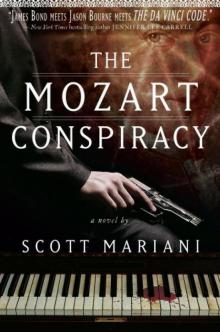 The Mozart Conspiracy
The Mozart Conspiracy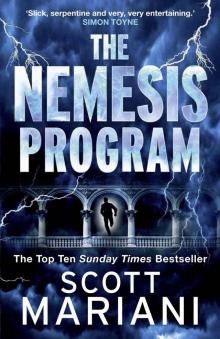 The Nemesis Program
The Nemesis Program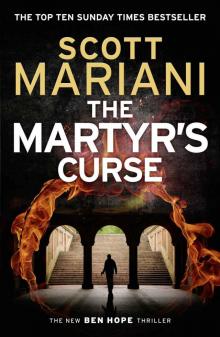 The Martyr’s Curse (Ben Hope, Book 11)
The Martyr’s Curse (Ben Hope, Book 11)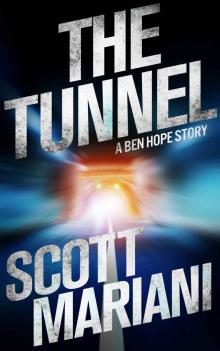 THE TUNNEL: A Ben Hope Story
THE TUNNEL: A Ben Hope Story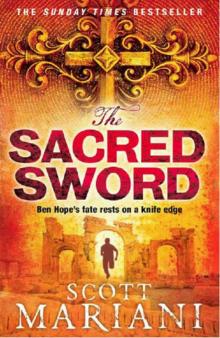 The Sacred Sword bh-7
The Sacred Sword bh-7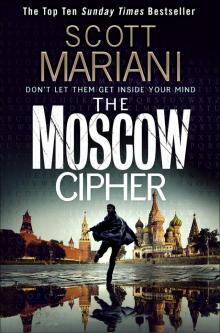 The Moscow Cipher
The Moscow Cipher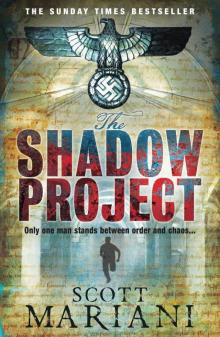 The Shadow Project bh-5
The Shadow Project bh-5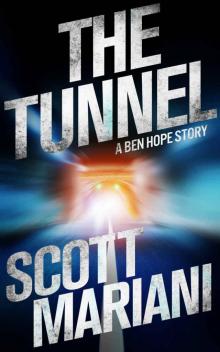 The Tunnel
The Tunnel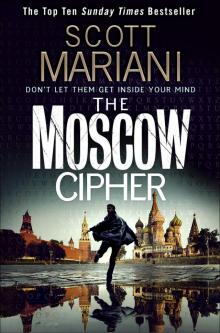 The Moscow Cipher (Ben Hope, Book 17)
The Moscow Cipher (Ben Hope, Book 17)